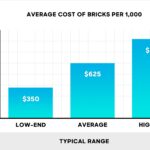Navigating the world of senior care can be overwhelming, especially when considering the financial aspect. Understanding the costs associated with different care options is crucial for making informed decisions and ensuring your loved one receives the best possible support. This article focuses on senior day care, also known as adult day care, exploring its costs and various payment options.
Understanding the Costs of Adult Day Care
Adult day care offers a valuable service, providing a safe and engaging environment for seniors who need assistance during the day while allowing them to maintain their independence and live at home. Compared to other forms of senior care, adult day care is often a more affordable option.
According to the Genworth 2019 Cost of Care Survey, the national average cost of adult day care was approximately $1,625 per month, or about $75 per day. This is significantly less than the cost of full-time home health care ($4,385 per month), full-time non-medical home care ($4,290 per month), or a shared nursing home room ($7,513 per month). Assisted living facilities, another residential option, averaged around $4,051 per month.
It’s important to note that these are national averages, and the actual cost of adult day care can vary depending on several factors, including:
- Location: Costs can vary significantly depending on the state and even the city.
- Services offered: Some centers offer more comprehensive services than others, which can affect the price.
- Hours of operation: Full-day programs typically cost more than half-day programs.
- Level of care needed: Individuals requiring more specialized care may incur higher costs.
The cost of adult day care typically includes a range of services, such as:
- Assistance with activities of daily living (ADLs) like walking, toileting, and transferring
- Blood pressure monitoring
- Weight management
- Healthy meals and snacks
- Social and recreational activities
Some centers may also offer additional services like physical therapy, occupational therapy, and transportation, potentially impacting the overall cost.
When researching adult day care options, it’s essential to inquire about what services are included in the base price and whether there are any additional fees for specific needs. Don’t hesitate to ask about admission deposits or whether the center accepts Medicaid or VA benefits.
Navigating Payment Options for Senior Day Care
While adult day care is often more affordable than other senior care alternatives, the cost can still be a significant burden for many families. Fortunately, several payment options are available to help offset these expenses.
Government Programs
- Medicaid: Medicaid generally covers adult day care services, especially for individuals requiring medical-based care. However, since Medicaid is partly state-funded, the specific benefits and eligibility requirements vary by state.
- Medicare: Traditional Medicare typically does not cover adult day care because it’s considered non-medical custodial care.
- Medicare Advantage: Some Medicare Advantage plans may offer supplemental health care benefits, including adult day care coverage. However, plans and costs can vary widely, so it’s essential to carefully review the details of each plan.
- Veteran’s Affairs (VA) Health Benefits: VA health benefits may partially or fully cover adult day care services for eligible veterans. Coverage typically includes medication management, blood pressure monitoring, and other health-related costs. Special benefits like Aid and Attendance can also be used to cover adult day care services.
Private Payment Options
- Out-of-pocket: Families can pay for adult day care services using personal savings, retirement funds, or other assets.
- Long-term care insurance: Long-term care insurance policies may cover adult day care expenses, depending on the terms of the policy.
- Reverse mortgages: Homeowners may consider a reverse mortgage to access funds to pay for senior care services.
- Employee benefits: Some employers offer benefits that can be used to cover elder care expenses.
State-Specific Programs
Many states offer non-Medicaid assistance programs to support eligible seniors and help them avoid nursing home placement. These programs often provide financial assistance for adult day care services. Contacting your local Area Agency on Aging can help you identify available programs in your state.
Making Informed Decisions
Understanding the costs associated with adult day care and exploring various payment options is essential for making informed decisions about your loved one’s care. By carefully researching different centers, inquiring about included services, and investigating potential funding sources, you can find a solution that meets your family’s needs and budget. Remember, staff at adult day care programs are valuable resources who can answer specific questions about their services and accepted payment methods.
